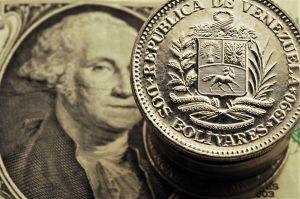In Venezuela, USD, Not Bitcoin, Still Reigns Supreme – Report
The United States dollar, not crypto, is still king in Venezuela, despite suggestions otherwise, a new report has alleged.

As previously reported, crypto adoption is on the rise in Venezuela, where crypto pay has enjoyed a boom. Cryptoassets such as bitcoin (BTC), ethereum (ETH) and dash (DASH) are now widely accepted at gas stations and many supermarket chains, while metro users can also ride the subway using smartcards paid for in crypto.
The state has also released and distributed a cryptoasset named the petro (PTR), which the government this year has pledged to revamp.
However, per Diario Bitcoin, with hyperinflation still crippling the fiat bolivar, the dollar is still the nation’s go-to currency, despite the government’s efforts to counter this.
The report makes note of the fact that most vendors list prices in USD, as bolivar prices are too unstable to use in commerce.
And while transaction volumes remain high on crypto trading platforms active in the country, the report’s author stated that experts agree that only “a small elite” – a barely “significant” slice of the population – makes regular use of crypto, a status quo “recognized by crypto users themselves.”
Lower-denomination USD bills are particularly hard to find, the author added, quoting journalists within the country. One unnamed journalist stated that some citizens are prepared to exchange USD 10 bills for eight one-dollar bills so scarce is the currency, while many outlets will refuse to allow customers, for instance, to pay for low-cost items such as a cup of takeout coffee using USD 20 or 10 bills.
Earlier this year, the Venezuelan government suggested that it would develop a greater “openness” to foreign currencies, which it had previously unsuccessfully attempted to limit access to.
On its Twitter account, the media outlet asked Venezuelan crypto users if they thought this new “openness” would harm bitcoin’s status as a “safe haven asset.”
Respondents claimed that while there was a “small and active community” of BTC users, reports of an exodus from the dollar to BTC and altcoins was wide of the mark, with one claiming that reports to the contrary “seem irresponsible and counterproductive.”
Others pointed out the link – as previously reported by Cryptonews.com – between BTC and the USD, with many believed to be using bitcoin and other tokens as a gateway: a means of buying dollars or moving money in or out of the country.
But others claimed that they had lost faith in the banking system – and doubted the greenback’s staying power on the international scene, with one opining: “Anyone who knows about crypto will not want fiat money.”
And the author concluded by pointing out that while the amount of fiat bolivars traded on over-the-counter platforms like LocalBitcoins is still on the rise, the amount of bitcoin traded on the platform has actually fallen dramatically since 2019. Last week, for instance, only BTC 71 was traded on the platform, down from a peak of BTC 2,487 traded in the first week of February 2019, per CoinDance data.
___
Learn more:
– Brazilian Banking Boss Says Venezuelans Use Bitcoin & Alts as a ‘Vehicle’
– Bitcoin Pay Gets Traction in Venezuela While Crypto Gathers Pace in Argentina
– Venezuela Unveils State-run Bitcoin, Litecoin, Dash, and Petro Exchange
– Colombia’s Banco de Bogotá Begins Crypto Pilot




